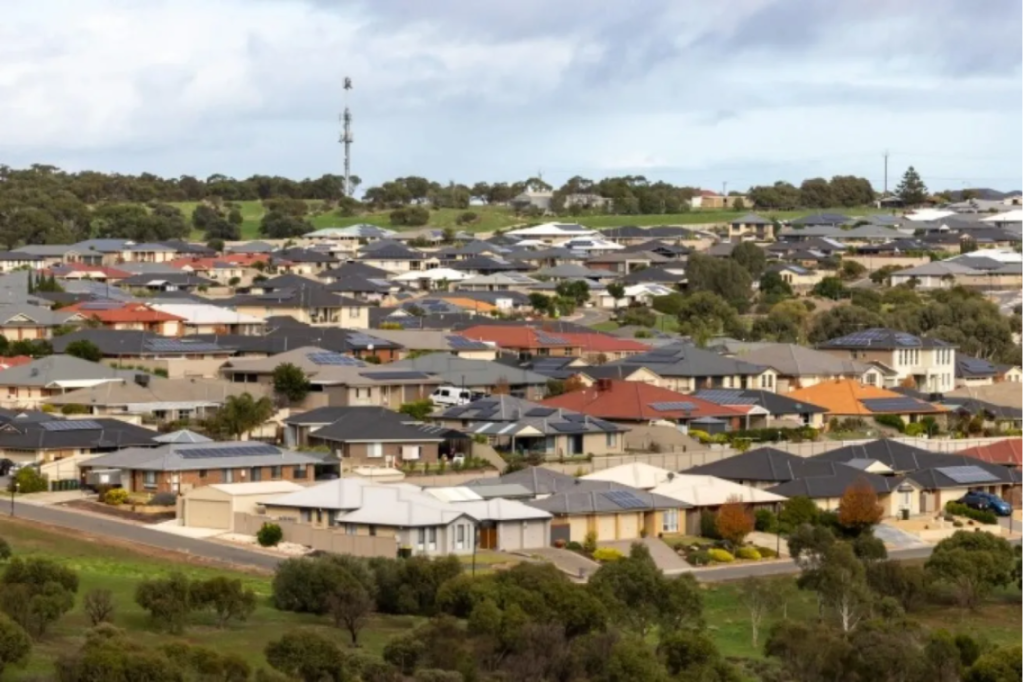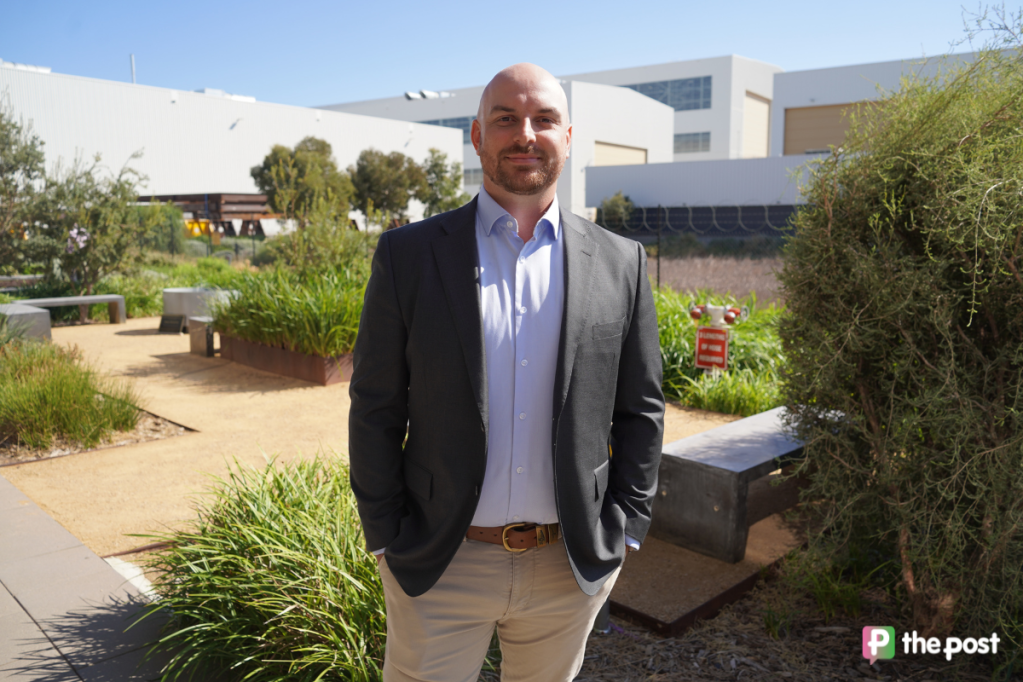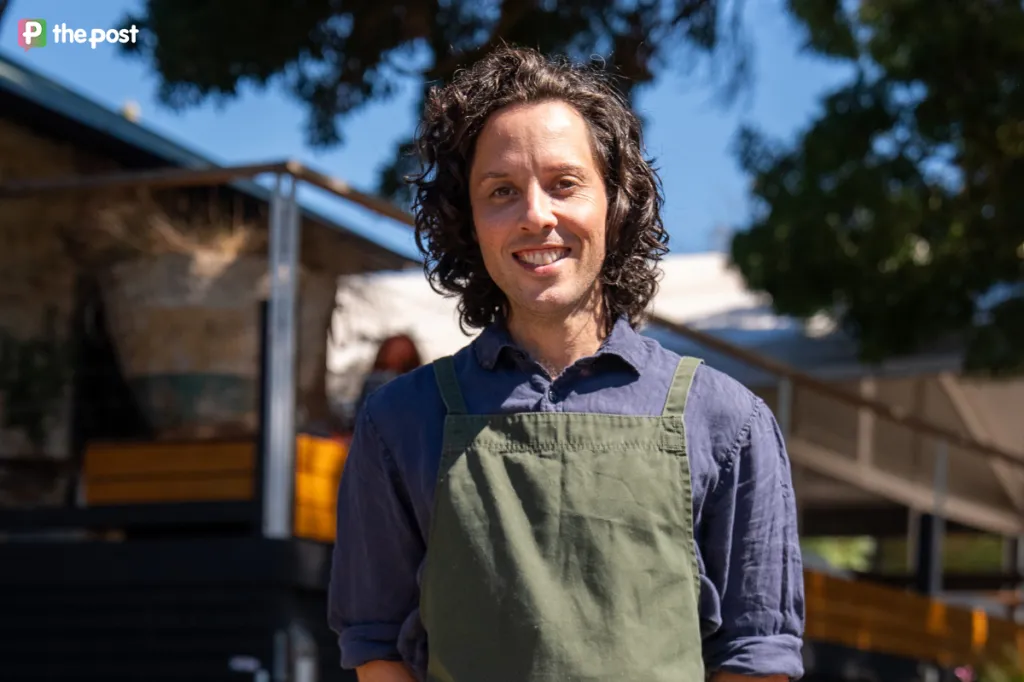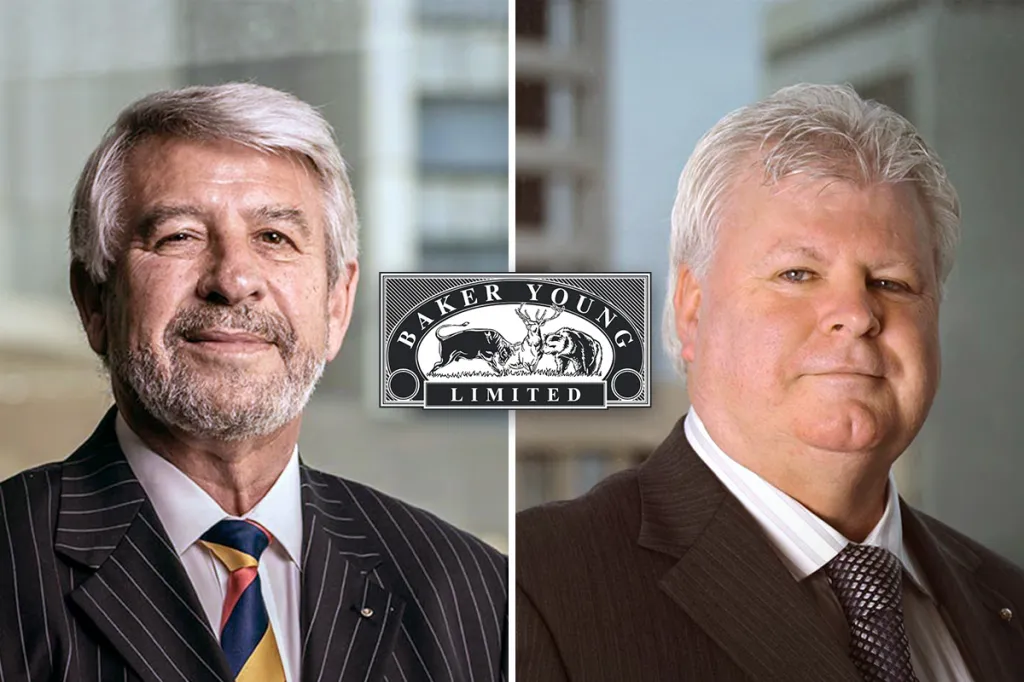No US Big Macs without SA beef says Trade & Investment Minister
South Australian defence, beef, lamb, minerals and education exporters will be particularly impacted by newly announced tariffs according to the state’s Trade & Investment Minister.
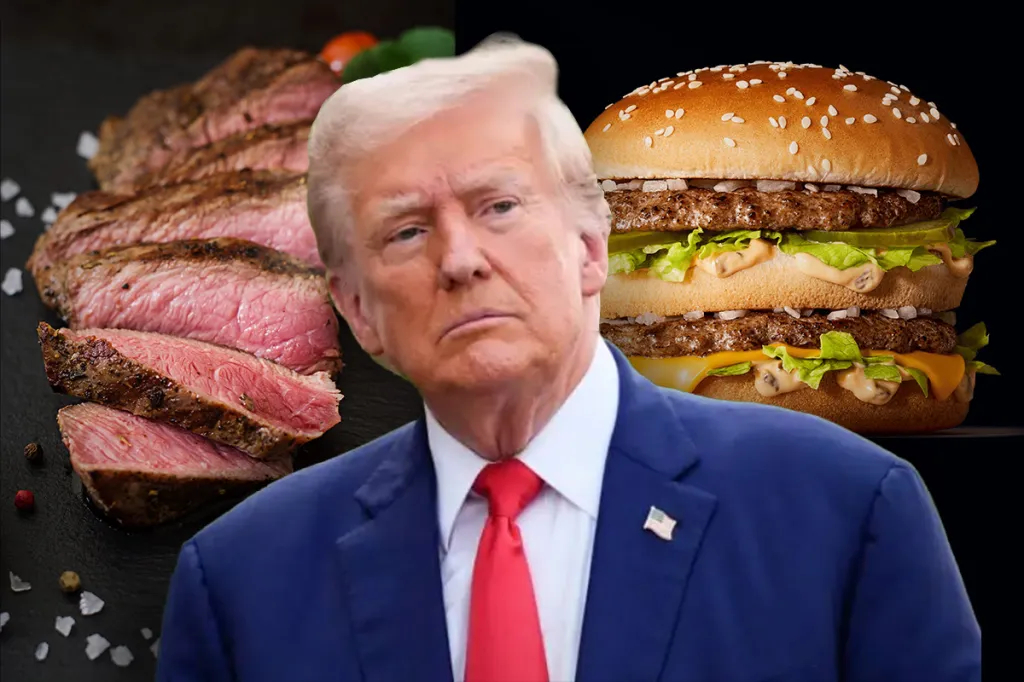
Trade & Investment Minister Joe Szakacs told InDaily that Americans might struggle to grab a beloved fast food item once newly announced 10 per cent import taxes are slugged on all Australian exports.
Speaking to InDaily, the Minister said that every industry is potentially exposed because the tariffs apply across the board, but certain sectors would feel the brunt of the new taxes.
The tariff – announced early this morning Australia time – will come into effect from midnight US time (later Thursday for Australia), after US President Donald Trump revealed his plan at the White House as part of his so-called “liberation day”.
In announcing the tariffs, Trump singled out Australian beef in a long list of complaints about America’s trading partners.
“Our major exports to the US are defence-related. We’ve got a very strong defence manufacturing and innovation industry in South Australia that exports considerable amounts to the US,” Szakacs said.
“We export considerable amounts of both beef and lamb to the US. We also export wine, critical minerals, ores.”
He said the state and federal governments were still modelling the impact of the newly announced 10 per cent blanket tariff, but said his immediate view was that the tariffs “will not impact the price of foods or the price of consuming those goods here in South Australia”.
“We’ve got a high-performing local economy and as a government we’re investing heavily in promoting the really strong principle that when it comes to buying and consuming that South Australia should always be put first.
“As far as being parochial, no one does it better than South Australians.”
Earlier today, the Australian Meat Industry Council reassured members that Australian red meat exports to the United States, including beef, will be allowed to continue trading but will be subject to the new 10 per cent import tax.
AMIC CEO Tim Ryan said his organisation was “obviously very disappointed”.
The Trade & Investment Minister said recent efforts to diversify South Australian beef exports had been paying off.
You might like
“But beef isn’t entering the US from South Australia because it’s cheaper. It’s not entering the US because it’s a volume driven commodity,” he said.
“Our beef is going to the US because it’s premium, it’s sustainable.
“Without South Australian beef, there will literally not be a Big Mac at McDonald’s because our beef is going into the burgers at America’s most iconic brand.
“We have a degree of resilience in our offering.”
Livestock SA CEO Travis Tobin told InDaily about 45 per cent of beef exports from South Australia went to the United States last year.
As such, its members are waiting to see how the situation plays out.
“We’re disappointed,” Tobin said.
“We think it will increase prices of red meat for US customers, but we don’t think there will be increased prices here for Australian customers.
“I guess we’re taking a little bit of comfort in the fact that we operate in a highly diversified global market environment and our product – red meat – continues to be in increasing demand.”
Asked whether the imposition of tariffs by the US on Australia represented a deterioration in the trading relationship between the nations, Szakacs said he agreed with what the Prime Minister said: “these are not the actions of a friend”.
“That doesn’t change the fact that we have a long-standing strength of relationship,” he said.
“As a government, we are deeply committed to not only sustaining these relationships, but growing them.”
For local winemakers, it is a case of deja vu, having only 12 months ago had punitive tariffs on Australian wine dropped by China.
Szakacs said his message to wine producers was clear: “The government stands shoulder to shoulder with them”.
“We did during the China shutdown. We do through global instability with trading,” he said.
“The one thing that our wine producers do in South Australia that is second to none around the world is our premium offering and the unique South Australian story that goes into that wine.
“We’ve seen significant growth in the rebound of our China exports. Our efforts have paid off.”
South Australia exports “hundreds of millions of dollars’ worth” of South Australian advanced manufacturing services and expertise to the US every year, Szakacs said.
Stay informed, daily
The defence sector will therefore be hit hard by the new tariffs, but he said the future of defence manufacturing in South Australia is strong – including AUKUS.
“The future of AUKUS and defence here in South Australia is incredibly prosperous,” he said.
The state Liberal party spokesperson for Trade, Industry and Investment Tim Whetstone said the tariffs would “no doubt impact South Australia in a number of ways”.
“But mainly, it’s a blow to our hardworking agriculture industry who have already faced previous trade restrictions on beef to China and are currently battling drought,” he said.
“In the year ending July 2024, South Australia exported nearly $200 million worth of beef to the United States, a market now threatened by these new trade barriers.
“Donald Trump says he’s making America wealthy again, but this move risks a trade war that could hurt us all. Our biosecurity laws exist for a reason – to protect our clean, green reputation, which is why the United States buys our beef in the first place.
“South Australia needs a strong, united response from both State and Federal Governments to protect this vital industry.
“The question every South Australian should ask is – is our Australia / United States free trade agreement not worth the paper it’s written on or will the Prime Minister and the Premier stand up and call for it to be honoured.”
Winemaking giant flags ‘minimal impact’
Penfolds’ parent company, Treasury Wine Estates (TWE) said the blanket tariff would have a “minimal impact” on its business thanks to the balance of its portfolio in the country favouring US-based wines.
“TWE does not anticipate these measures to have a material impact on its business, with its Treasury Americas division, which contributed 36 per cent of group EBITS in 1H25, well placed given the composition of its portfolio,” TWE said.
The company said its US earnings were made up of 15 per cent ($35 million) from Australian/New Zealand produced wine (19 Crimes and Matua), which are imported into the US as bulk wine and packaged locally.
Meanwhile 85 per cent of earnings were from US-produced wine, most notably for its Luxury portfolio which includes DAOU, Frank Family Vineyards, Stags’ Leap, Beringer and Beaulieu Vineyards.
South Australian Wine Industry Association chief executive Inca Lee said the organisation was “disappointed by the US government’s announcement”.
“During this critical time for the wine industry, it is essential to continue working with the South Australian government to strengthen investment in our key export markets and domestically within Australia, to increase demand for our world-renowned wines,” Lee said.
“Despite this setback, the US will continue to be an important trading partner for our wines.”
First-ever direct flights to USA
The state government this morning spruiked new direct flights between Adelaide and San Francisco from December 2025.
The flights are the first-ever between the USA and Adelaide, with the seasonal service departing San Francisco on 11 December 2025.
The 15-hour flight will operate three times per week until March 2026, with the first flight from Adelaide to San Francisco departing on 13 December 2025.
United Airlines will operate the flight on a Boeing 787-9 Dreamliner, with 257 seats. Tickets are on sale today.
Premier Peter Malinauskas said today was a “historic occasion for South Australians who have long wanted to fly direct to the United States”.

